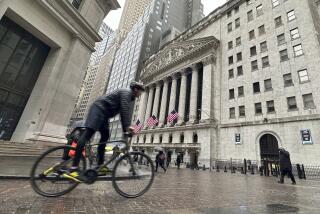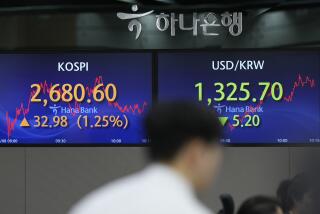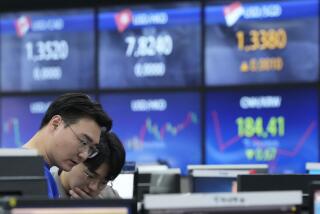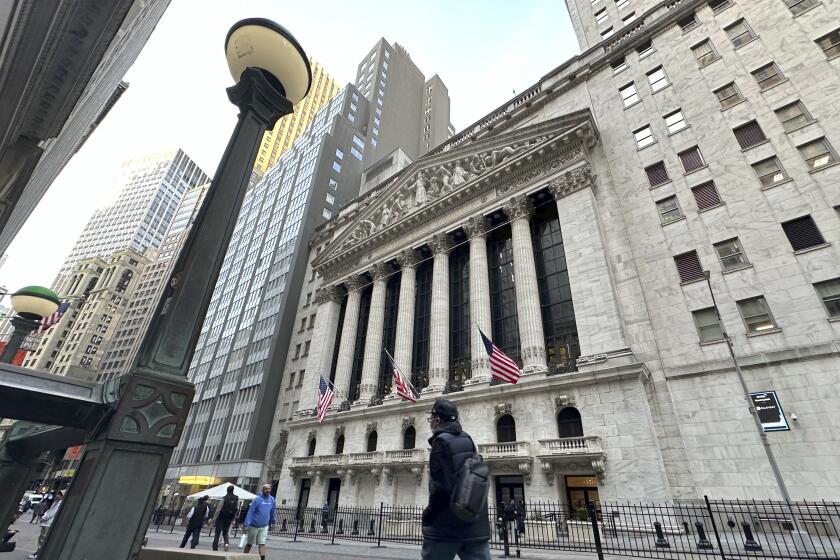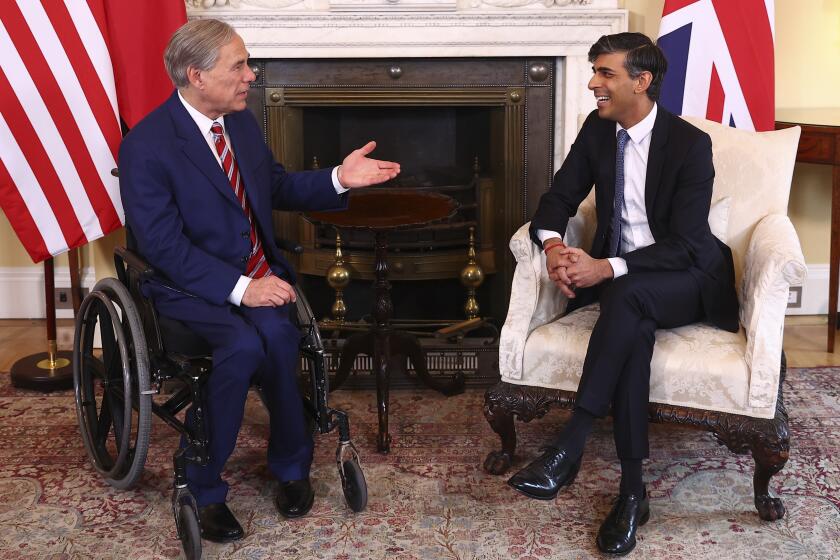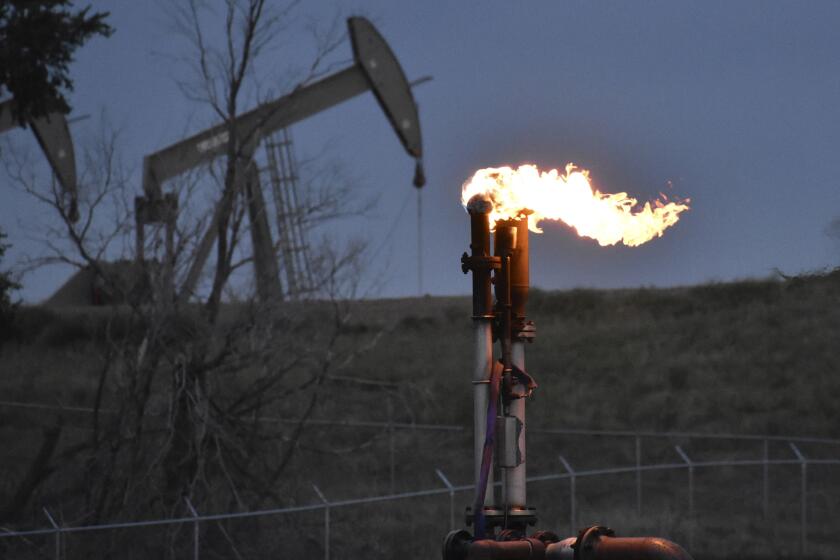Wall Street rallies to a record as Big Tech stocks renew their run
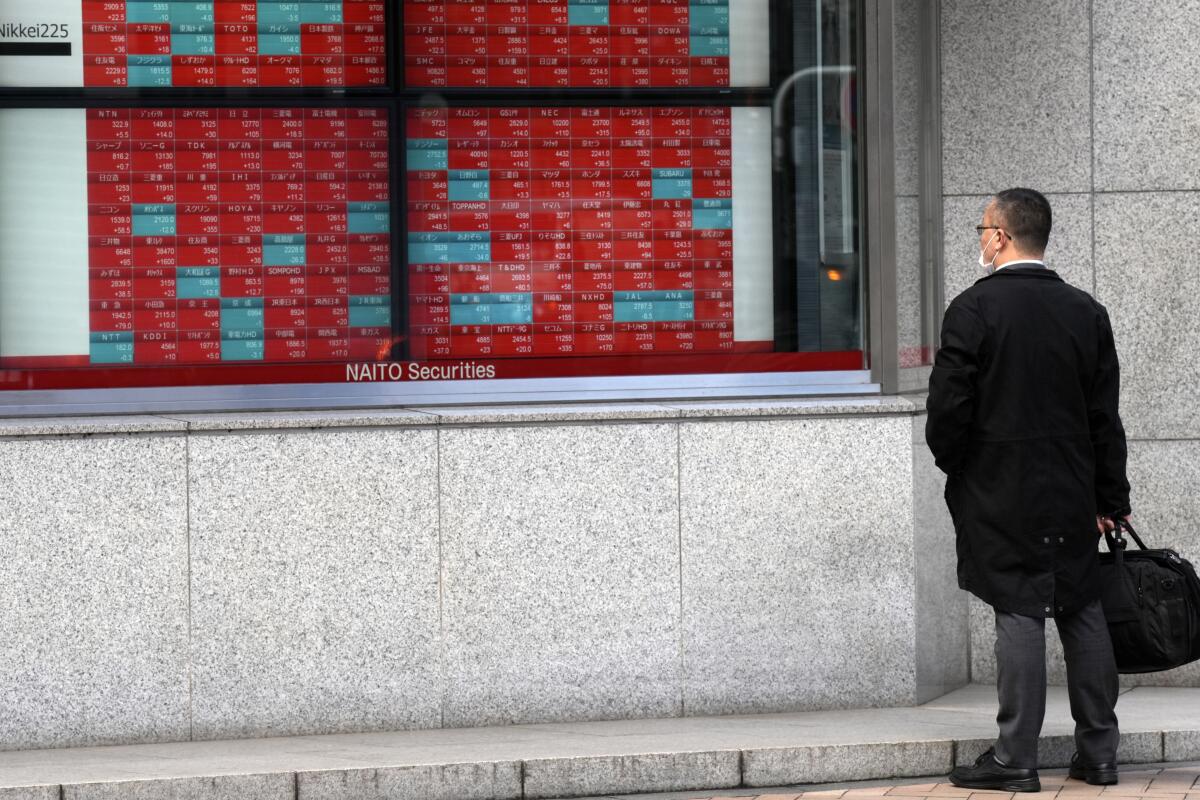
U.S. stocks rallied to records Tuesday, led again by technology companies, as some of Wall Street’s most influential got back in their groove.
The Standard & Poor’s 500 jumped 1.1% to top its all-time high set last week. The Dow Jones industrial average climbed 0.6%, and the Nasdaq composite jumped 1.5%.
All three indexes began the day with losses after a highly anticipated report on inflation said U.S. consumers paid prices that were a bit higher last month than economists expected. The worse-than-expected data kept the door closed on hopes that the Federal Reserve could deliver long-sought cuts to interest rates at its meeting next week.
But the inflation figures were still close to expectations, and traders held on to hopes that the longer-term trend downward means the Fed will begin the hoped-for cuts in June. That helped stock indexes to reverse their losses as the day progressed.
Plus, inflation may not be as hot in reality as the morning’s report suggested.
“January and February are notoriously noisy months for a lot of economic data,” said Brian Jacobsen, chief economist at Annex Wealth Management.
“The Fed wasn’t planning on cutting rates next week, and this report doesn’t change that. The discussion around the table will be more about the longer-term trend.”
The fear is that “sticky” inflation that refuses to go down will force the Fed to keep interest rates high, which grinds down on the economy and investment prices. The Fed’s main interest rate is already at its highest level since 2001.
“Another hotter-than-expected CPI reading may breathe new life into the sticky inflation narrative, but whether it actually delays rate cuts is a different story,” said Chris Larkin, managing director, trading and investing, at E-Trade from Morgan Stanley.
For months, traders on Wall Street have been trying to get ahead of the Federal Reserve and guess when rate cuts will arrive. They have already sent stock prices higher and bond yields lower in anticipation of it.
Through it all, the Fed has remained “nothing if not consistent in doing what it said it would do,” Larkin said. “Until they say otherwise, their plan is to cut rates in the second half of the year.”
The immediate reaction across financial markets to the inflation data was nevertheless halting and uncertain.
In the bond market, Treasury yields initially dropped and then swung higher. The yield on the 10-year Treasury eventually rose to 4.15% from 4.10% late Monday.
The price of gold, which has shot to records on expectations for coming rate cuts, also swung. An ounce for delivery in April ended up falling $22.50 to settle at $2,166.10. A measure of nervousness among U.S. stock investors, meanwhile, eased more than 8% after squiggling up and down a few times.
On Wall Street, big technology stocks did much of the market’s heaviest lifting. Oracle jumped 11.7% after reporting stronger profit for the latest quarter than analysts expected.
Nvidia also rallied 7.2% to bounce back from a rare two-day stumble. A frenzy on Wall Street around artificial intelligence technology has caused its stock to swell, making it one of the most influential on the market. It was the single strongest force pushing the S&P 500 upward on Tuesday.
New York Community Bancorp rose 5.8% after it said it had closed its previously announced deal to raise roughly $1.05 billion in cash from the sale of stock. The bank has been struggling under the weight of falling prices for commercial real estate and the growing pains associated with prior acquisitions it made. Its troubles have also led to worries about the broader regional banking industry.
3M climbed 5% after it said Bill Brown, the former chairman and chief executive of L3Harris Technologies, will take over as its CEO at the start of May.
On the losing end of Wall Street was Southwest Airlines. It dropped 14.9% after cutting its forecast for an important measure of revenue in the first three months of this year, partially because of lower-than-expected demand by some leisure travelers.
It also said Boeing had told the company that it would deliver fewer airplanes than expected this year. Shares of Boeing, which is facing criticism over safety and manufacturing quality, sank 4.3%.
All told, the S&P 500 rose 57.33 points to 5,175.27. The Dow climbed 235.83 points to 39,005.49, and the Nasdaq advanced 246.36 points to 16,256.64.
In stock markets abroad, Japan’s Nikkei 225 slipped 0.1%, retreating further from its recent records. Expectations are building that its central bank will raise interest rates, which are below zero.
Indexes jumped 3.1% in Hong Kong, 1.2% in Frankfurt and 1% in London but moved more modestly elsewhere across Asia and Europe.
Stan Choe writes for the Associated Press. AP business writers Elaine Kurtenbach and Matt Ott contributed to this report.
